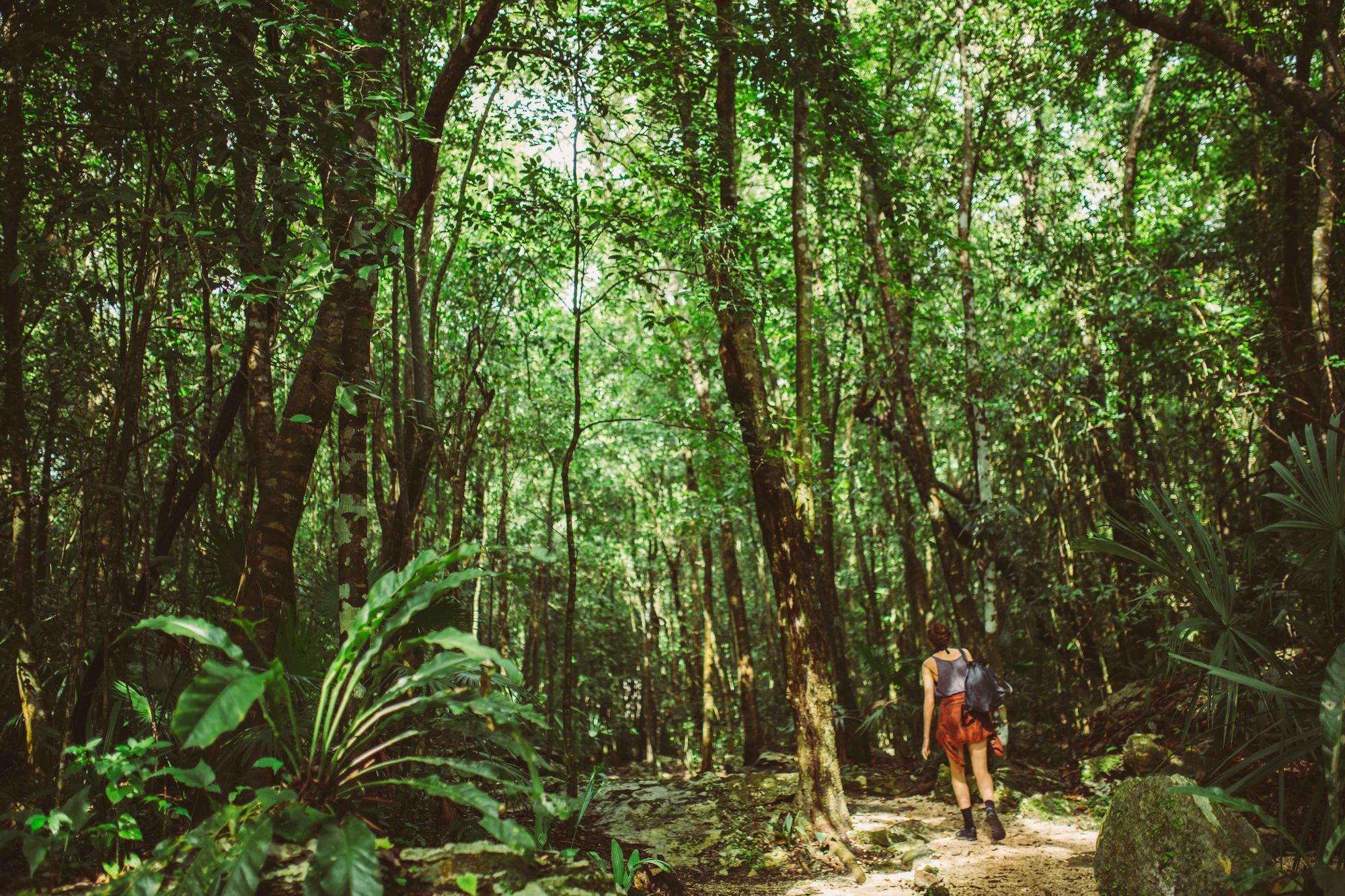Marking our homework and the lessons we learnt along the way.
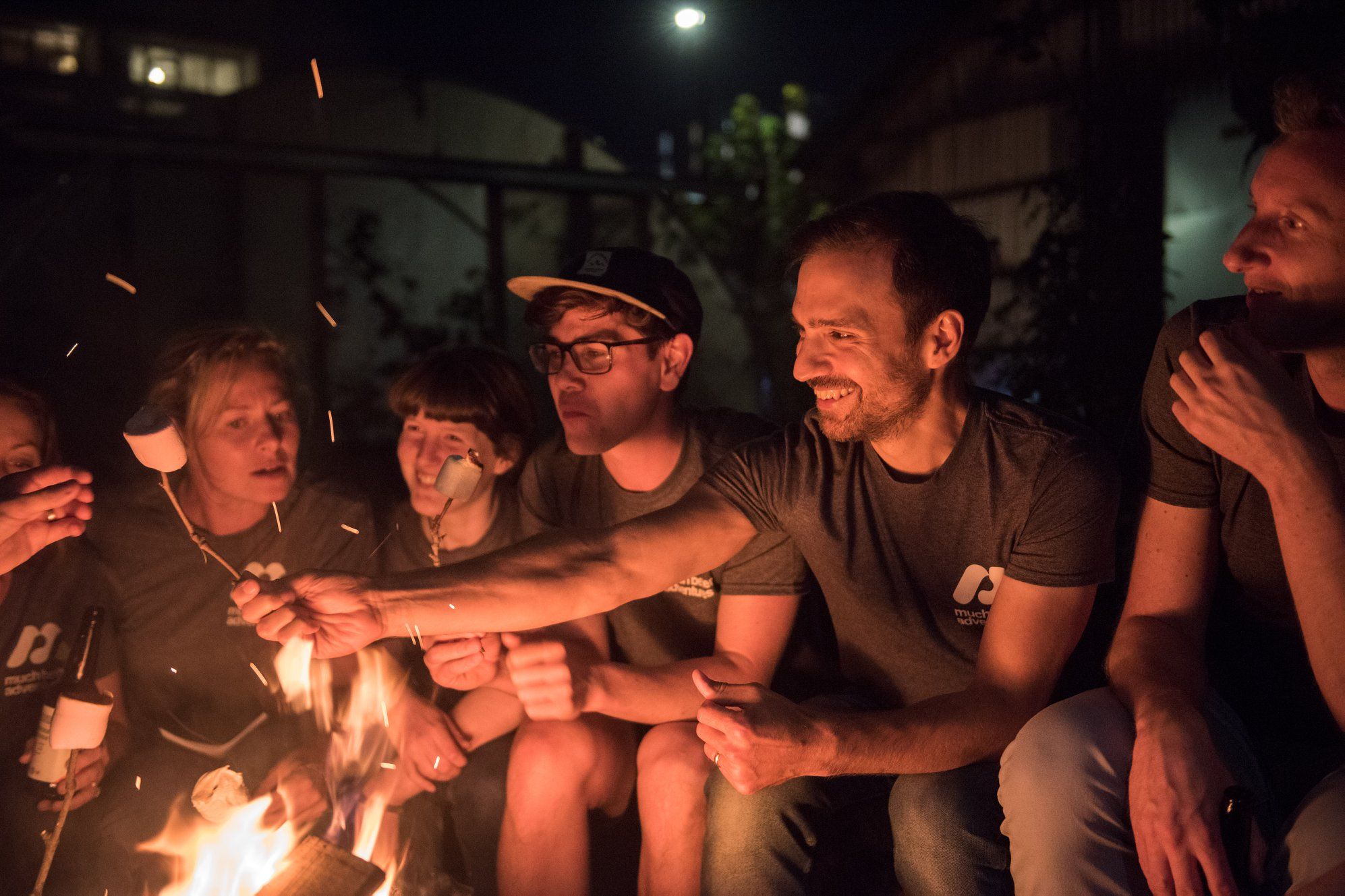
What's all this?!
If you recall - and top marks if you do - in 2020 we declared a Climate Emergency and called on the rest of the industry to join us. In 2021 we collaborated with the United Nations Environment Program, United Nations World Tourism Organisation, The Travel Foundation and Visit Scotland to see our original climate emergency declaration successfully adopted as the central tourism industry framework for climate action, launched at COP26 in November as the Glasgow Declaration.
As part of that declaration, we committed to measuring and reporting on our climate footprint, publishing a transparent climate action plan, and updating on our progress annually. ‘Marking our homework’, so to speak, with the help of Ecollective - a carbon consultancy. Read on for our scorecard.
As usual, we’ll share our 2023 carbon footprint, then go through every goal in our plan one by one, and comment on where we got to. The lessons we learn along the way inform the goals we set in our 2024/2025 plans.
Our Carbon Footprint
Our total carbon footprint in 2023 was 12,388,696 kg CO2e, of which estimated customer flight emissions were 10,488,029 kg CO2e (~85% of the total).
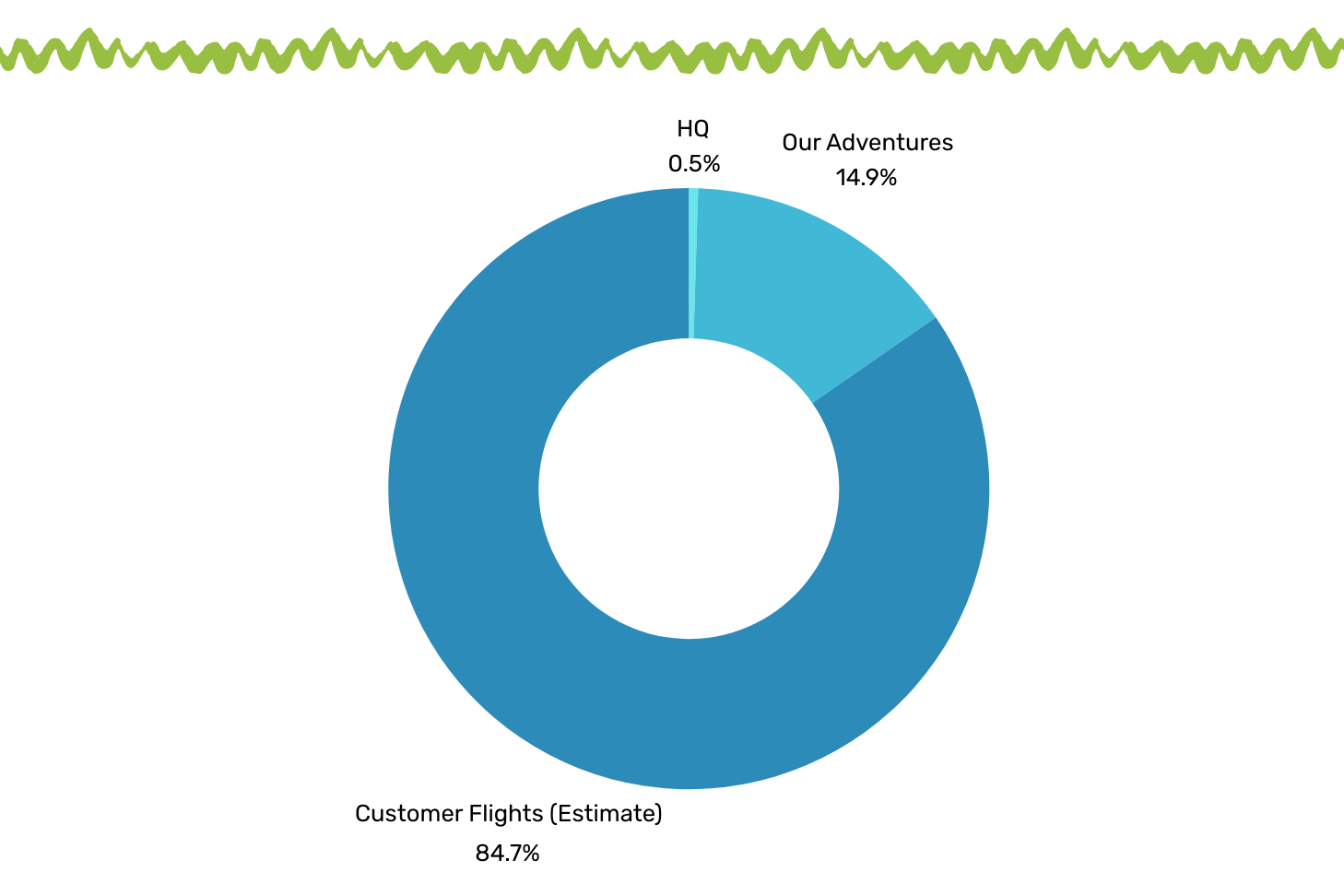
GETTING GEEKY WITH THE DATA
While we will address flight emissions shortly, the breakdown below illustrates the distribution of our carbon footprint across our trips and our fully-remote 'headquarters'.
Our Adventures and HQ:
- Trip accommodation: 680,472 kg CO2e
- Transfer emissions: 106,535 kg CO2e
- Domestic flights: 85,044 kg CO2e
- Business travel: 29,205 kg CO2e
- Purchased goods: 8,108 kg CO2e
Measurement & Reduction Metrics
We are working towards reducing our on-trip emissions to 17 kg/customer/night by 2030, in line with our Glasgow Declaration statement (focussed on carbon intensity vs absolute emissions).
- In 2021, this was 35 kg/customer/night.
- In 2022, this increased to 40 kg/customer/night.
- In 2023, we improved our efficiency, reducing it to 33 kg/customer/night.
In sum:
- We reduced our carbon footprint per customer per night by 7kg/customer/night.
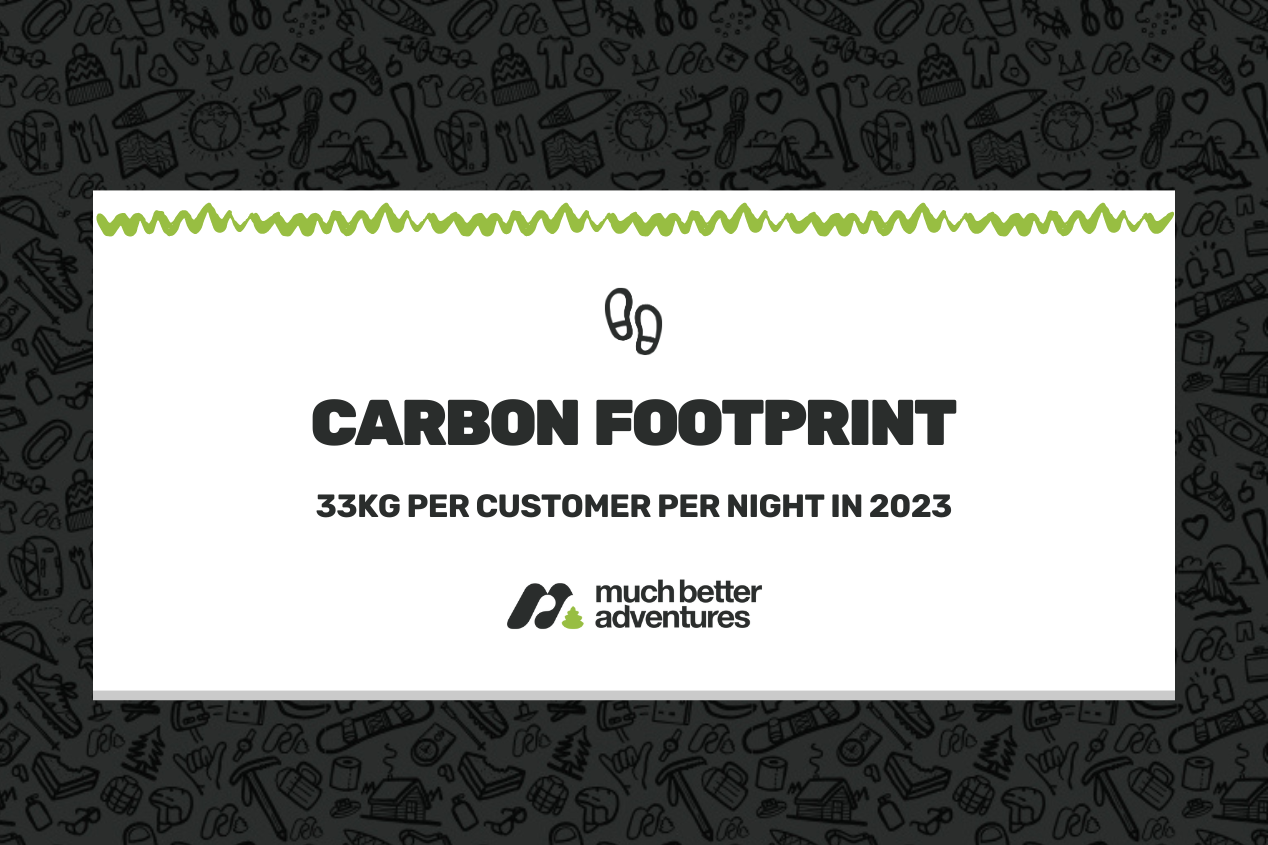
But what about the other 85% that is estimated customer flights?
While the flights taken by our customers are not included in Much Better Adventures’ direct carbon footprint, we recognize the importance of accounting for these emissions. Our official carbon measurement and reduction goals focus on our headquarters and the trips we offer, where we have the most control and opportunity to make a difference. However, we also estimate the carbon footprint of our customers' flights. This helps us identify ways to minimize their impact, such as developing more adventures closer to home and accessible by train (more on this below).

Marking (and setting) our homework
Our Climate Action Plan is broken down into 4 main areas: Measure, Reduce, Remove and Campaign.
Every year, we update the plan to include our goals for the coming year, and publish a transparent report sharing our carbon footprint for the year, and assessing our progress against the goals we set. Here's how we got on in 2023 and plans for 2024 in each of these areas.
1. Measure
2023 Goals:
Our carbon analysis includes an estimate of all local transport, accommodation, activities, guides, staff and office operations, and food. The only major thing it doesn’t include is flights and travel to the destination.
However, as we don’t book flights, have customers from all corners of the world, and no way of reliably knowing their travel plans, we simply can’t include them in the figures on display - for now.
We aim to fix that, so that when a customer books, we can measure and mitigate the carbon emitted by each individual customer's travel plans too.
Progress:
We have worked with Ecollective to estimate the carbon footprint of our customers' flights based on their country of residence - we didn't however manage to also mitigate their flights or travel to destination.
2024 Goals:
Trips: In 2024, we need to get more granular data re our trips to understand where the majority of the carbon is coming from. We will be surveying our hosts to ask for more information ref the accommodation, food and transport inclusions on their trips.
Customer flights: We will also aim to become more granular re the carbon footprint of our customers travel to and from the destination. We plan to update the customer information form to gather exact details of travel to and from the trip so that we can accurately measure where they are coming from and how they are arriving/departing.
2. Reduce
2023 Goals:
- Through extensive consultation with our local hosts and industry partners, and further extensive data collection, we aim to develop a carbon reduction strategy and framework for 2023-2030 that will support our local hosts to phase out higher carbon accommodation choices, adjust menus and transport choices in particular.
- Continue to expand the range of adventures that are accessible by train, and an ever wider range of big adventures designed to encourage customers to fly less, and stay for longer.
Progress:
- We're making progress here, gathering data on accommodation, food and transport from our local partners - that's step 1. Step 2 will be a multi-year plan to support our hosts in decarbonising their supply chain.
- Yes! We added more new trips in Europe and expanded our range of adventures accessible by train to 26. We also added more of our longer Big Adventures which now makes up 70% of our total trip range. We have also introduced weeklong versions of our top-selling weekend trips - these are selling well and encouraging our customers to stay longer.
2024 Goals:
- We will continue to enable our hosts to more granularly understand their carbon footprint with a report and suggested actions for carbon reduction by end of 2024 - with a view to review progress in 2025.
- Continue to expand our range of Big Adventures and our Get There by Train collection.
3. Remove
2023 Goal:
- Maintain our commitment to ensure our trips achieve Net-Zero emissions.
- Upgrade our carbon measurement tools so that when a customer books we can accurately measure and offset the carbon emitted by each individual customer's travel plans too.
Progress:
- Carbon emissions are categorised into Scope 1, 2, and 3, - as a remote agency-based company, all of our emissions fall under Scope 3 (use of sold goods and services).
We ensure that some of our foundation pot (where we donate 5% of our revenues, not profits) is used to fund the World Land Trust’s Carbon Balance programme. This ensures that all the carbon emitted from our trips is offset through high-quality nature-based carbon credits. - We are working on upgrading our measurement system for customer's flights/travel to destination but we didn’t manage to offset their travel to the destination as well as their trips.
2024 Goal
- Maintain this commitment to support the World Land Trust and offset all the carbon emissions emitted by our trips.
- Upgrade our carbon measurement tools so that we can measure and give customers the facility to offset their own flights/travel to the destination upon booking.
4. Campaign
2023 Goal:
We recognised that given the relatively small size and carbon footprint of our business, the biggest carbon reduction gains are likely to be had by focussing our efforts on campaigning. That's why in 2020 we co-founded the Tourism Declares a Climate Emergency movement the Glasgow Declaration at COP26.
Our goal in 2023, was to continue to support, advise and advocate for climate action through these frameworks we have established.
Progress:
Tick. We continued to show leadership and share best practice in the industry on a variety of industry panels and talks.
2024 goals:
We'll continue to find opportunities to do this.
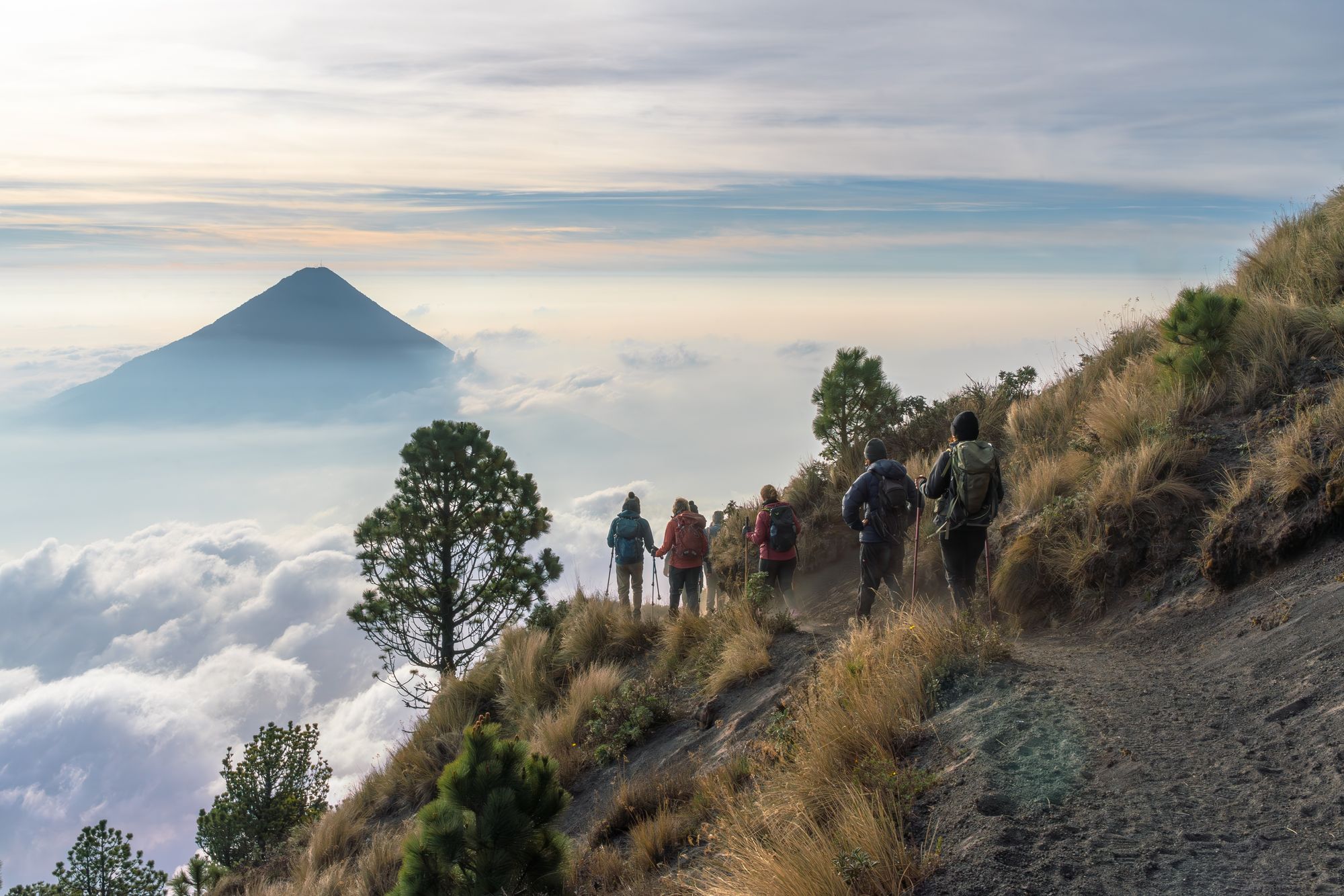
Conclusion
Closing the chapter on 2023, we’re optimistic about our continued journey towards reducing our carbon footprint and leading the industry in ever-more sustainable travel practices.
We are looking forward to enhancing our measurement systems, working with our partners on further opportunities to be reducing emissions, removing carbon we can't reduce through high-quality offsets, and continuing to campaign for industry-wide improvements to meet the targets set out in the Glasgow Declaration.
We passionately believe in the transformational power of adventure to protect wild places, support local communities - and make people feel alive. In 2024, we'll continue to enable all this whilst working on what we feel are the key areas to do so with a ever smaller footprint.
We would like to thank the team at Ecollective, a carbon consultancy focused on measuring and reducing our organisation's carbon footprint, for helping us with this summary and our carbon journey.

